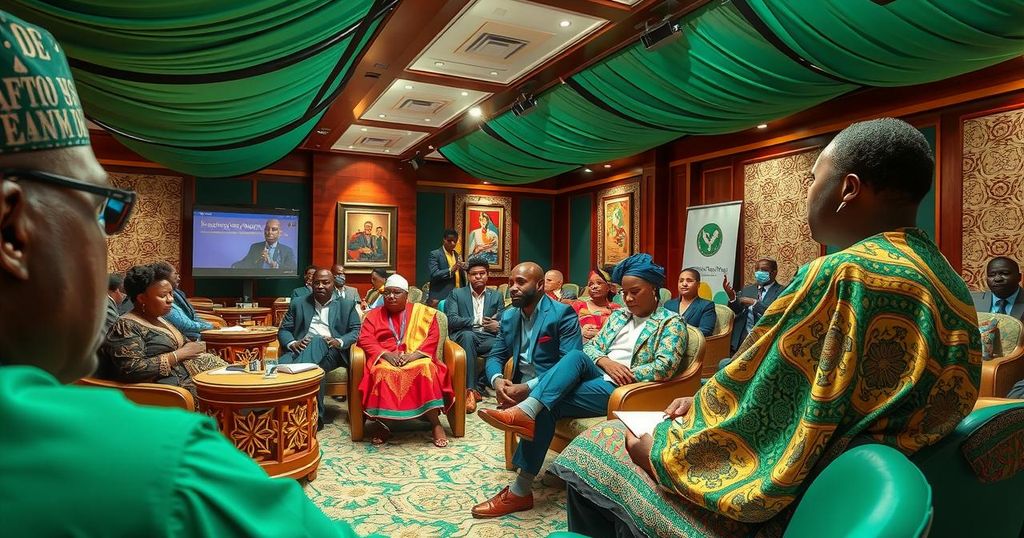Rand Merchant Bank Nigeria hosted an Economic Forum focusing on Nigeria’s reform landscape, addressing macroeconomic trends, digital finance, and risk management. Key insights from discussions highlighted the potential of government reforms in fostering investment and economic stability, the importance of strategic business positioning, and the challenges of digital transformation.
Rand Merchant Bank Nigeria (RMB), a prominent corporate and investment bank, organized an Economic Forum that attracted business leaders, policymakers, and financial experts. This exclusive event, themed “Beyond the Change: Steering Through Nigeria’s Reform Complexities,” was held at The Wheatbaker Hotel, Ikoyi. It served as a crucial platform to discuss significant topics such as macroeconomic trends, financial markets, taxation, digital finance, infrastructure, and risk management.
Bayo Ajayi, the CEO of RMB Nigeria, underscored the potential opportunities arising from the government’s economic reforms. He emphasized that adapting to these changes is essential for businesses to thrive. Ajayi highlighted reforms such as the liberalization of the exchange rate and alterations in tax policies that are aimed at boosting investments and fostering long-term economic stability. “The liberalization of the exchange rate has improved access to dollars…and enabled investment opportunities for investors,” Ajayi stated.
Focal discussions at the forum included strategic positioning for businesses during policy transitions, moderated by Samantha Singh-Jami from RMB Research for Africa. Panelists, including Dr. Christian Ebeke from the IMF, Mr. Kenneth Erikume from PwC, Mr. Deepak Bhojak from Tolaram Group, and Mr. Tilewa Adebajo from The CFG Advisory, deliberated on navigating policy changes while maintaining profitability. Dr. Ebeke remarked on the positive effects of ending fuel subsidies, indicating, “The impact of government reforms is very clear…increased Foreign Direct Investment, and greater financial stability compared to previous years.”
The forum also delved into Nigeria’s ongoing digital transformation and associated risk management, led by Prof. Olayinka David-West, Dean of Lagos Business School. Experts, including Mrs. Ngover Ihyembe-Nwankwo from NIBSS, Dr. Femi Ogunseinde from MOFI, and Mr. Tokunbo Taiwo from Digital Jewels Africa assessed emerging technologies like Artificial Intelligence and Blockchain. Mrs. Ihyembe-Nwankwo warned about cybersecurity risks, while Dr. Ogunseinde stressed the urgency of bridging digital infrastructure gaps, stating, “Nigeria remains far from its penetration target…the high cost of broadband provision continues to be a challenge.”
The RMB Nigeria Economic Forum proved significant in facilitating dialogue among industry leaders and policymakers. The timely discussions provided rich insights into navigating Nigeria’s evolving economic environment, reinforcing the urgent need for agility and innovation to ensure sustainable growth in the sector.
In summary, the RMB Nigeria Economic Forum addressed critical elements of Nigeria’s economic reforms and the challenges posed by shifting policies. With insights from esteemed professionals, the discussions encompassed the need for strategic business positioning and the management of digital risks. Overall, this platform illustrated the collaborative effort required for achieving sustainable growth within Nigeria’s complex economic landscape.
Original Source: punchng.com




